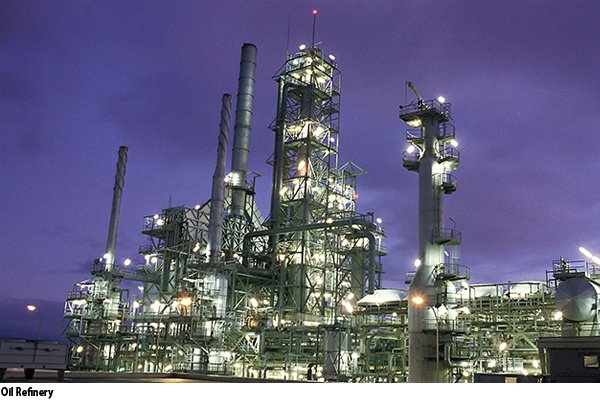Just as the latest report of the United Nations’ Intergovernmental Panel on Climate Change, the IPCC, was being released, another global initiative to tackle climate change was on the way. .
In fact, before the annual meeting of a program to make industries carbon free at the global level, a preliminary meeting of this program is being organized in India.
The Industrial Deep Decarbonization Initiative (IDDI) of the Clean Energy Ministerial (CEM) is a global coalition of public and private organizations working to stimulate demand for low carbon content in industries. The round of important meetings of IDDI is going on in the capital of the country, New Delhi. The meeting in India is a prelude to the CEM13 meeting to be held in Pittsburgh, USA in September, where governments will announce their ambitions to make industries carbon-free. These include setting green public procurement policy commitments and procurement targets that can help in faster response by key industries.
About three-quarters of the total greenhouse gas (GHG) emissions globally come from the electricity sector. Carbon emissions from heavy industry are around 20 to 25 percent. Science says that to avoid the worst effects of climate change, we have to reach Net Zero Emissions by 2050. This requires intensive decarbonization from all sectors including industry. The IDDI meeting comes just after the Intergovernmental Panel on Climate Change (IPCC) mitigation report underlined the need for industries to take rapid steps towards decarbonisation. has gone.
For example, the steel industry needs to decarbonize rapidly if we are to keep global warming below 1.5 °C. Annual global steel production is about 2BMT and contributes to more than 7 percent of the total GHG. Steel sector emissions need to fall to 2050 levels by at least 50% by 2030 and 95% by 2050 to align with the 1.5 degree global warming pathway. However, current predictions suggest that steel demand will exceed 2.5 BMT annually by 2050, with the majority of that growth in emerging economies. Keep in mind that in countries like India, development needs are extremely important and cannot be compromised.
India is the third largest steel producer in the world and most of the steel produced in India is used domestically. According to the IEA, by 2050 about a fifth of the steel produced globally is expected to come from India, compared to around 5% today.
About 80 percent of India’s infrastructure is yet to be built, which means hard sectors like steel play a key role in setting decarbonization targets to help India meet its 2030 and New Zealand targets.
India is already the world’s second largest steel producer and is expected to increase its annual production volume by 2050 by an amount equal to twice the EU’s total output in 2019. The COVID-19 crisis is affecting the country’s steel industry.
Since steel is the backbone for the manufacturing, automotive and even renewable sectors, making the industry carbon-free is the key to reducing emissions. India can help ensure that its steel industry is on track for a sustainable future by helping India meet its net zero targets by reducing steel public procurement targets under IDDI by 30-50% .
Anirban Ghosh, Chief Sustainability Officer, Mahindra Group says, “There is a need to secure a pathway to steel decarbonization if we are to meet the net zero targets. For the auto industry, Green Steel can be a catalyst in creating zero carbon mobility solutions for India. We welcome the Government of India’s commitment to building a Net Zero future and are confident that India’s leadership at CEM-IDDI will help us honor that commitment.”
Global trade rules such as the European Union’s Carbon Limit Adjustment Mechanism (CBAM) will make carbon dense steel more expensive in the European market. Similarly, US President Biden’s Buy Clean Task Force will ensure that green steel is more competitive in the US market and consequently Indian steel is less competitive.
Prarthana Bora, Director, CDP-India, said, “There are challenges in terms of technical feasibility and solutions to decarbonize this sector and steel companies are also aware of them, but Indian steel companies now have a Start working together and share best practices as it is the need of the hour.”

